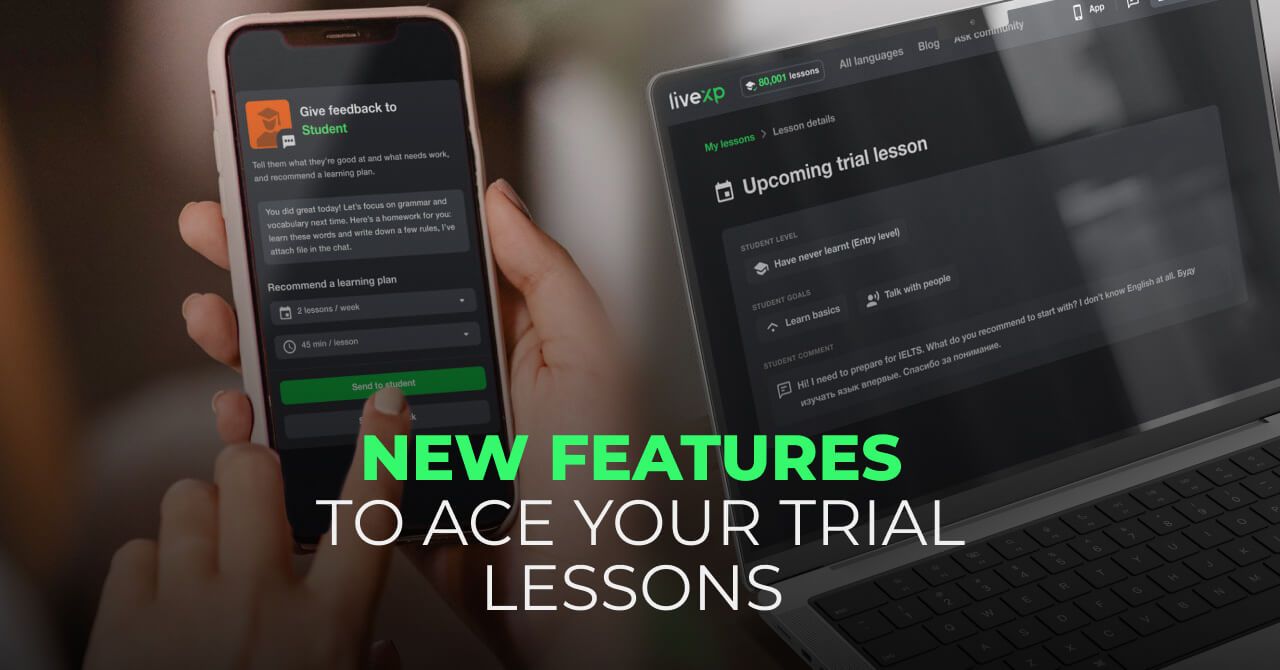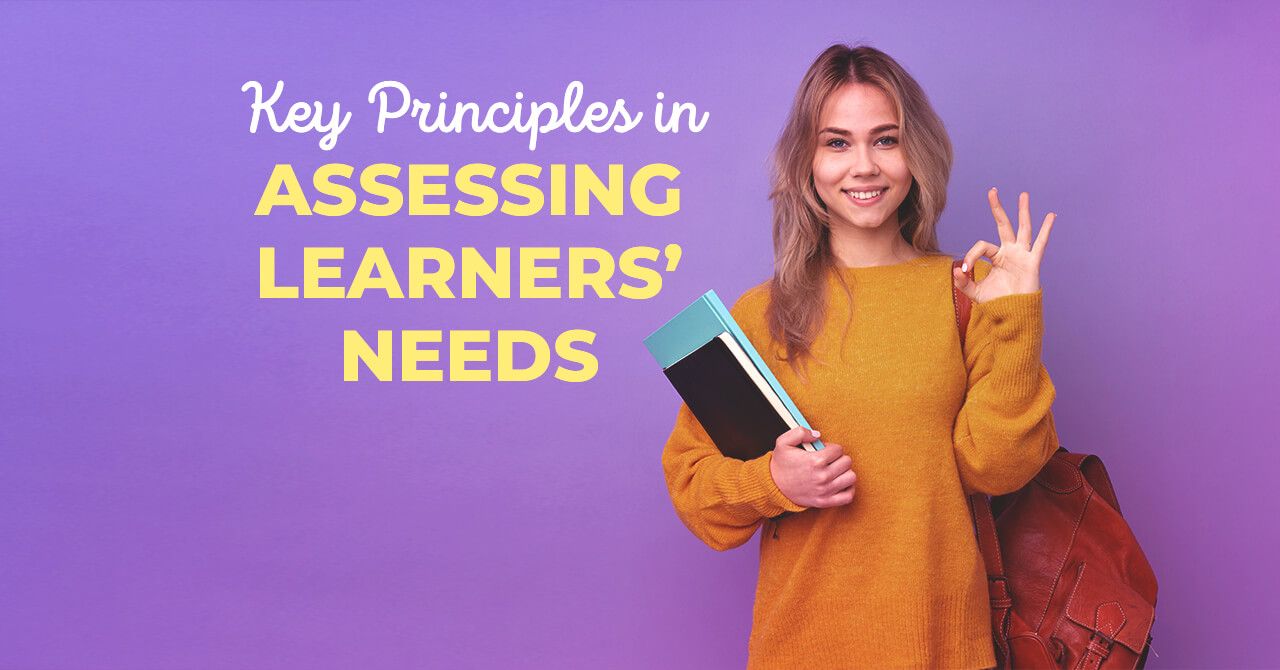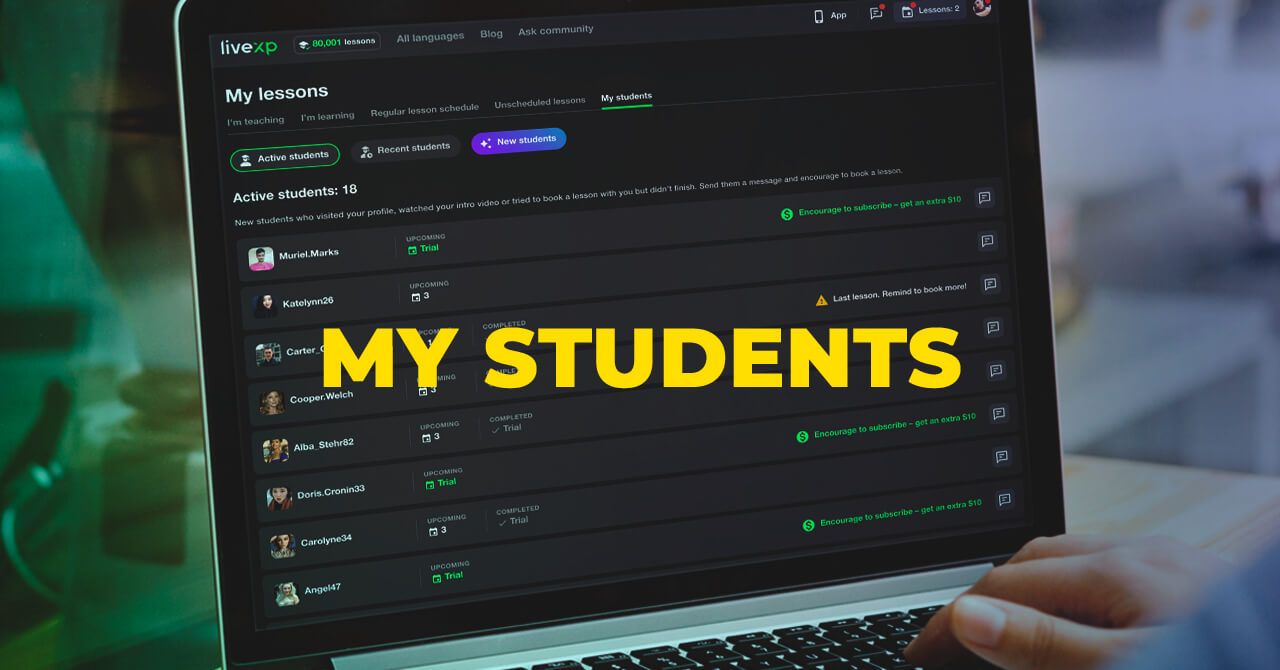LiveXP Blog
Develop yourself by learning new skills with LiveXP. Grow with us!

Ancient Written Languages Too Difficult For Even Experts to Decipher
Not all languages of ancient civilizations discovered have been deciphered. Here are some of the languages from ancient times that have proven to be most difficult to decipher, even by experts.

Better Way to Ace Your First Lesson With a New Student
When booking the first (trial) lesson, students now share some helpful information with the tutor in advance. We’ve introduced functionality for tutors to leave feedback for students after trial lessons.

How to Use Transition Sentences to Make Your Writing Read Better
Transition sentences are like the bridge between two sentences or paragraphs. They help one idea transition to another, showing the reader what the link is between two parts of a text and making it more fluid and easy to read.

Key Principles in Assessing Learners’ Needs
Provide useful and relevant instructions Learning a new language means that the individual will be able to use the new language skills outside of the classroom. Students need to know that authentic English from the real world will be incorporated into the lessons. These activities are the keystone of the communicative language approach. At the end of each class, students must be able to use at least one new idea or skill. A skillful teacher will explain how they do things in class. Moreover, th

When to Use “Be Patient” or “Have Patience”?
We can use “be patient” and “have patience” interchangeably in most cases.

The Simple Past Tense With Examples
Past Simple Tense is another “simple” tense, which means that in the affirmative form, we have only the main verb with a suffix, and in the interrogative and negative, the auxiliary verb “to do.”

Learning Languages Not Only Makes You Smarter but Also Improves Your Social Skills
Studying languages has more to offer in terms of advantages than just boosting one’s career.

Tutors’ “My students” is back!
Tutors can find “My students” as one of the tabs in the “My lessons” section.